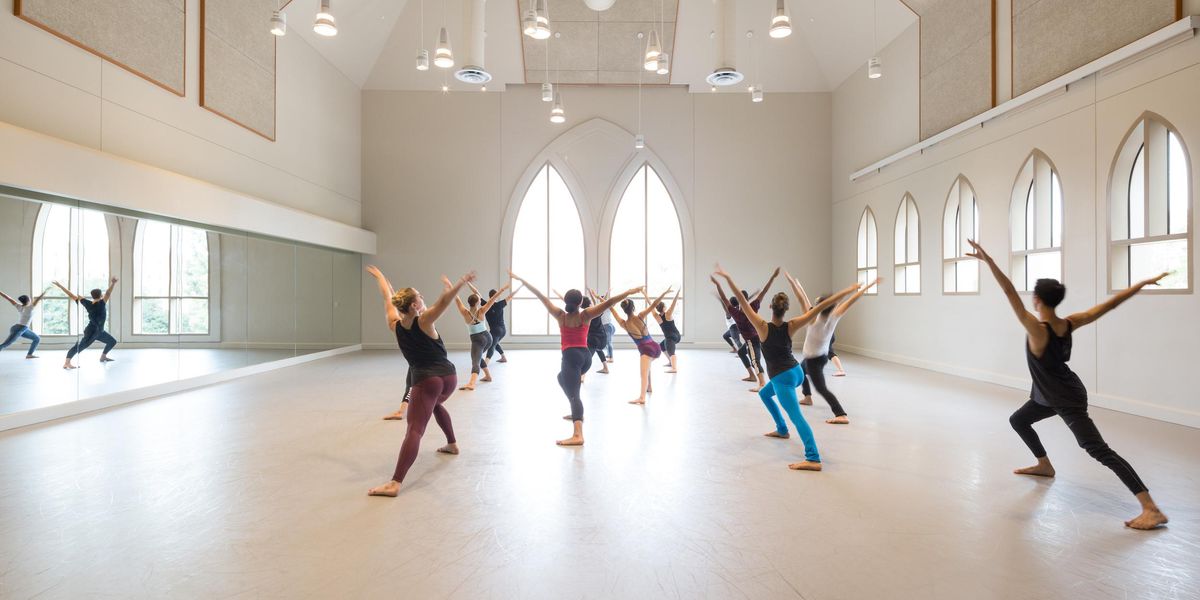Advice for Dancers: Stop Panicking Every Meal
Plus advice for dealing with back spasms and performing in polluted cities
Question: My back has been hurting off and on every day for a few months. It spasms sometimes when I dance or do ab exercises. I’m managing it with warm baths, gentle stretching, and standing (sitting hurts, especially on long subway rides). What else can I do for occasional back pain?
Megan
White Plains, NY
Answer: I’m sorry to break the news, but pain that occurs daily for months isn’t occasional—it’s chronic. The spasms are your body’s way of protecting itself from an underlying vulnerability. The question is, What vulnerability? While there are many causes of chronic back pain, dancers generally experience problems from one of three sources: 1) discogenic, such as a herniated disc; 2) structural, arising in the bones like a stress fracture; or 3) arthritis from wear and tear, leading to degenerative joints. In contrast, a muscular problem, such as a pull or strain, would be temporary, unless it were a major tear. There’s also a rare possibility that your back pain is due to a health problem, such as a tumor or an inflammatory disease like rheumatoid arthritis. Only an orthopedist can know for sure. Unfortunately, most dancers tough it out under the misguided belief that self-care will make pain magically disappear one day. Please make an appointment with a dance medicine specialist. If finances are an issue, contact the Dancers’ Resource at The Actors Fund for health insurance counseling, referrals, injury support, and emergency financial assistance (www.actorsfund.org). In the meantime, cut out ab exercises, such as crunches, until you get the green light from your doctor. Otherwise, you may delay the healing process.
Question: I have a problem with binging after a week of salads, and my weight went up 20 pounds last year. I finally decided to get help from a dietician. She’s very nice, but she wants me to aim for 1,800 calories daily and I feel like I’m gorging. I don’t trust that eating more food will help me lose weight. I’m dancing five hours a day and going to the gym twice a week. How can I stop panicking every time I eat?
Yo-yo Dieter
Miami, FL
Answer: Right now, you see food as your enemy, not your friend. Learning to trust it after an extended period of yo-yo dieting takes time. But eating a sufficient amount of calories is the best way to protect yourself from binging and weight gain. Your body will no longer be in starvation mode, thus removing hunger as one of the main triggers to overeat. You burn about 1,200 calories daily just to live, and it’s common to use up another 500 dancing. A registered dietician can develop a balanced meal plan of healthy carbs, protein, and fat to reach your goal weight. High-density choices, such as cashews, and liquid meals often make it easier to increase your calories without feeling stuffed. Yet you also need to deal with your feelings about food. A clinical psychologist who works with dancers’ eating problems can provide you with skills to reduce your anxiety and offer emotional support. To locate a specialist in your area, visit www.renfrewcenter.com. I’m proud of you for seeking help, given the difficulties of changing eating habits. Remember: There is a light at the end of the tunnel.
Question: How can dancers protect themselves from major pollution in different countries? Our company just toured to a city overseas where the air was so bad we wore masks during rehearsals. Many dancers got sick anyway. We’re touring to other “exotic” countries soon and I want to survive them without feeling ill.
Breathless Dancer
NYC
Answer: According to the World Health Organization, fine air particles pose the most serious short- and long-term health risks compared to other contaminants like vapors, nitric oxides, and ozone. Dancers with upper respiratory issues (e.g., asthma or allergies) should see their doctor before leaving to find out whether they need to bring medications on tour. Meanwhile masks only work against air pollution if you wear them all the time except during performances. They may not look glamorous, but the ability to breathe trumps fashion. The masks also need to be the right kind. Research shows that N95 masks, which you can get at hardware stores, block 95 percent of fine particles, whereas cloth masks are only minimally effective by keeping out a mere 28 percent. As you rightly noted, it helps to be prepared!
Former New York City Ballet dancer Linda Hamilton, Ph.D., is a psychologist in private practice, the author of
Advice for Dancers (Jossey-Bass), and co-author of The Dancer’s Way: the New York City Ballet Guide to Mind, Body, and Nutrition (St. Martin’s Griffin). Her website is www.drlindahamilton.com.
SEND YOUR QUESTIONS TO:
Dr. Linda Hamilton
2000 Broadway, PH2C
New York, NY 10023




